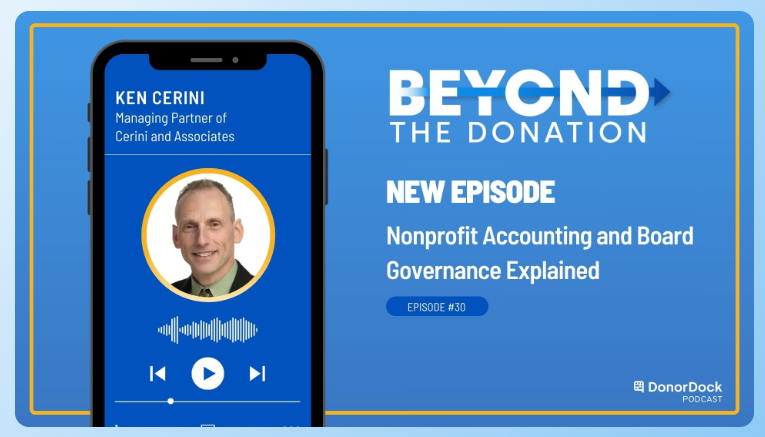When was the last time your organization evaluated its accounting software… or maybe you are a start-up, keeping track of your organization’s finances on excel or even paper ledgers and now it is time to upgrade to a more sophisticated system. Many organizations tend to be apprehensive about moving from their current accounting system, because they are used to doing it the way they have been doing it for years and newer staff tend to accept what they have inherited from their predecessors. With the proper plan and evaluation of several factors this could ease the apprehension and drive efficiency in your financial reporting. Whatever the situation may be, the factors to consider when settling on a system are the size of your organization now and where the agency is moving in the future (scalability), budget, integration and automation, and ease of use.
Scalability
One of the most recognizable names in the accounting software arena is Quickbooks which has been one of the industry leaders for years because of the ease of use and cost “out of the box.” Even though software like Quickbooks and its equivalents have many tools built into it, is it truly scalable for your organization? Depending on the size and complexity of the financial data you are collecting currently and projected to in the future, you need to determine if these applications are truly going to be scalable to your business in the future. Further, now with the introduction of cloud-based software and as people have become more receptive to the idea of cloud-based accounting solutions, it is important to understand the difference between the user experience in a cloud-based environment versus the traditional desktop version. Some accounting software, such as Quickbooks, have very different user interfaces between the cloud and the desktop versions. Another point to think about with scalability is how easy is it to customize the software to meet your financial reporting needs now and in the future? Will the organization be able to customize, add cost centers, add different locations, etc. and be able to generate financial reports for each financial reporting segment of your business you wish to see data on?
Budget
Another factor to consider is the budget for accounting and financial reporting software. Most businesses will focus on the main drivers of their business when budgeting, however, it is important to also factor in the cost of infrastructure such as financial reporting software to accurately maintain the books and records of the organization. Proper accounting software integrated with other software applications used by the organization allows management to generate reports on a regular basis to allowing for more timely and effective decisions. Organizations that do not consider this and treat their accounting and financial reporting software as one of the lower priority items in the budgetary process tend to lack the systems needed to gain crucial insights into their operations because of the limitation set forth by the less costly solution. Further, less costly system may have ease of use, which is one of the factors that should be considered but may lack the ability to provide adequate internal controls, opening the organization up to additional exposure. One point to be made when budgeting for your accounting and financial software is the ability for the pricing to be scalable with your business. Just as the factor of scalability is important in function it is also important to find a solution that is scalable in pricing based on the features you are utilizing at any point in time. Finally, when it comes to budget is many financial applications are turning to a subscription-based model. Looking into solutions that may have a higher up-front cost and lower month to month or annual cost may save you money in the long-term.
Integration and Automation
With the rapid evolution of technology and its impact on all we do, its ability to communicate with other software applications, and the increasing addition of AI into all applications, it is increasingly important that any accounting software application you choose has the ability to expand as your business does. Standalone accounting software does not work anymore; the ability for an accounting software to accept bridges and integrate sepamlessly with other software created by other vendors has become an absolute necessity. An example of this would be the ability for your accounting software to be able to integrate with your outside billing software to help efficiently book transactions, revenues, and receivables. No longer should the staff that is responsible for recording revenues and receivables have to download or print the report from the billing software and manually enter transactions to record revenues and receivables into your accounting system. One system should feed into the other, with the staff checking the integrity of the data and troubleshooting any anomalies in real-time. Further, with the power of AI, some accounting software will learn your routine and can auto-populate information into the accounting system when recording entries and data. Finding an accounting software that has the ability to integrate and automate functions gives the C-suite better information in a much more efficient manner to make the big decisions that drive continued growth and visibility to the financial health of programs on a real-time basis.
Ease of Use
While many organizations tend to put ease of use much higher in factoring software decisions, I believe it should be one of the final deciders in picking the right accounting system for your organization. After determining all the previous factors and coming up with your top two or three accounting and financial software applications, then you should consider ease of use. Too often organizations get hung up on ease of use before they fully explore an option, and that may not be the best approach. Salespeople are great at selling “ease of use” because they know this is what gets you hooked; however, the solution is actually lacking much needed functionality when you actually begin to utilize it. Yes, ease of use is important since we need to make sure users can use the product with ease and efficiency but making sure that the software can provide you with the information needed, in a timely and integrated fashion, should be paramount in the decision-making process.
With any business decision, especially one as important as choosing an accounting software application system, it is important to consider every factor. Coming up with a decision tree and having multiple brain storming sessions with the various individuals that handle this information on the day-to-day basis is important. Technology can certainly be scary especially for those who are used to their daily routines, but technology should not be feared it should be embraced. Just like when computers first became common place, we learned, we adapted, and now we basically carry them in our pockets each day and wonder how we ever lived without them. There is not a day that goes by where technology doesn’t affect our lives both personally and professionally. Embracing technology is one of the single most important tools to have in your organization’s arsenal to keep your organization moving forward and make the right decisions. Accounting software has certainly grown and adapted over the years and will continue to in the future. The question is, will your organization grow with it?

Albert Borghese, CPA
Director
Albert is a member of Cerini & Associates’ audit and consulting practice where he focuses on serving the firm’s special education and nonprofit clients. Albert is also involved in the marketing and development of the firm, and frequently participates in recruiting efforts, and research.






